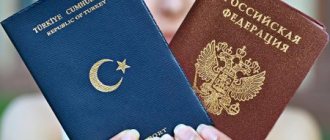Option
Option is the acquisition of citizenship by people who, due to changes in the country’s borders, find themselves on the territory of another state. At the same time, the change in borders took place in accordance with the norms of international law, that is, through a peace treaty to clarify or change the borders between the two countries.
The option implies the right to choose: a person can remain in the territory of the new country and take on the appropriate citizenship. Or remain in your previous citizenship of the country that transferred the territory. But in this case, as a rule, there is a need for relocation within a specified period.
Reasons for option
In addition to territories passing from one state to another, there are two other reasons why an option procedure can be launched. This:
- The disintegration of the country into several smaller countries.
- Formation of a new state.
In both cases, international law provides for mandatory selection of the population, so that people living in these territories are not left without citizenship and state support. Moreover, residents must have a free choice of one citizenship or another and, in any case, all their property rights must be preserved.
Sometimes an option is the choice of a person with dual citizenship in favor of one of his passports. This situation may arise when a state formally recognizes dual citizenship, but in reality only fully recognizes its own citizenship. A person has to answer for the responsibilities of both states, which may prompt him to decide to give up one of the passports.
To obtain Russian citizenship it is necessary. And here is a sample of how to fill it out.
Naturalization in Russia
Acceptance of citizenship of the Russian Federation was made in accordance with articles 13 and 14 of the law “On Citizenship of the Russian Federation” dated May 31, 2002 62-F3 number. According to this law, obtaining citizenship of the Russian Federation is possible in a simplified or general order. To obtain citizenship of the Russian Federation in the general order, this is required: to be older than 18 years; it is continuous to live on the territory of the Russian Federation as a permanent resident for 5 years (the term is reduced to 1 year for specialists in the field of science, equipment or culture, job seekers, political asylum, refugees); have a legal source of livelihood; undertake to observe the constitution and acts of the Russian Federation; know Russian language.
There is also the possibility of obtaining citizenship of the Russian Federation in a simplified order without complying with part of the above-established conditions. This opportunity is given:
people who have at least one parent - a citizen of the Russian Federation living on its territory; residents of the republics of the former USSR who did not receive citizenship of these states after they gained independence; people who were born on the territory of the RSFSR and the citizenship of the USSR; people who have been married to citizens of the Russian Federation for at least 3 years; service under contract in the armed forces of the Russian Federation for 3 or more years; people who incapacitated children of citizens of the Russian Federation, 18 years of age or older; participants in the program for the voluntary resettlement of compatriots abroad and some other categories.
Transfer
Transfer is a forced exchange of population between two countries, which is contrary to the norms of modern international law. Therefore, the transfer is an extremely rare phenomenon in the world and it occurred only twice:
- The Treaty of Lausanne of 1923 provided for the forced relocation of Turks from Greece to Turkey, as well as the forced relocation of Greeks from Turkey to Greece.
- The Potsdam Conference of 1945 decided that all Germans living in Czechoslovakia, Hungary and Poland were forcibly resettled in Germany.
That is, a transfer is a measure often caused by international, sometimes military, conflicts. Its goal is to prevent possible future military clashes due to the fact that the warring parties live on the territory of the countries participating in this conflict.
Filiation
Filiation is the acquisition of citizenship by birth and can be of two types, according to the “principle of blood” and according to the “principle of soil”.
Filiation is the easiest way to obtain citizenship, and different states choose different options for this method of conferring citizenship:
- By right of blood - a child receives the citizenship of his parents, regardless of the country in which he was born.
- By right of soil, a child receives citizenship of the country in which he was born, regardless of the citizenship of his parents.
This method of obtaining citizenship is the most natural and common. Considering that affiliation directly affects the migration picture in each state, countries make their choice in favor of one option or another. For example, in Russia the principle of blood is adopted, and in the USA the principle of soil is adopted.
In Russia, citizenship is assigned to:
- In the case when one of the parents is stateless (stateless person), and the second is a citizen of Russia.
- If one of the parents is a foreigner, birth on Russian territory becomes decisive.
- If the baby’s parents are unknown, then after 6 months he automatically becomes a citizen of Russia.
In its pure form, the principle of blood is practiced extremely rarely, and in the modern world, it is most characteristic of a state such as Israel. Modern practice combines both approaches to filiation.
Since the principle of jus soli is practiced in the United States, it has become a common practice to come to this country for childbirth. Thanks to this, you can be sure that the newborn will receive US citizenship, even if his parents only have a residence permit.
Naturalization
This is the most natural way for any foreigner who wants to move to live in a certain country and become its citizen. For example, to undergo naturalization in Russia, you must:
- Obtain a residence permit giving the right to reside in the country.
- Live here for 5 years without leaving Russia, more than 90 days each year.
- Obey the law and not engage in illegal activities.
- Know Russian language.
- Have an idea of the history of this country, its Constitution and laws.
If you follow these rules, you can hope that after five years of living in the country, you will receive Russian citizenship. During this time, you will need to confirm your social and financial viability:
- Confirm the fact of a legal source of income by providing a certificate from work.
- If you are unemployed, provide a bank account statement confirming the availability of sufficient funds to live in Russia.
- A positive factor is having your own real estate in Russia.
- Confirm your tax integrity by attaching a certificate from the tax service.
- If you own a business, provide a certificate about it.
Well, in general, you will be expected to provide any evidence of your financial well-being. Russian legislation allows for dual citizenship, but only with those states with which there is a valid international agreement.
As a rule, a prerequisite for naturalization is knowledge of the language of the country receiving the immigrant.
Therefore, it is worth making a sufficient amount of effort to master the language of the host country. This is necessary not only to undergo mandatory procedures, but also for a comfortable life in this state.
European countries
Naturalization in Europe also occurs in different ways. Let's take a closer look at some popular ones for acquiring the status of a citizen of a country.
Latvia
In order for a person to be naturalized in this country, he must submit an application to the territorial Migration Office and meet the following criteria:
- Age at least 15 years.
- Reside permanently in the country for 5 years with a pause of no more than a year. However, a break in the last year before submitting an application is not allowed. It is worth considering that for people with or without citizenship of other countries, the qualification period begins to count only from the moment they receive permanent residence in Latvia.
- The applicant must speak the Latvian language and know the Constitution, anthem, history and cultural characteristics of the Republic.
- The applicant must have a legal source of income.
- There must be evidence of filing a notice of renunciation and expatriation, or documentary evidence of loss of citizenship status or lack thereof. This requirement does not apply to persons staying in Latvia as refugees.
Naturalization will be denied if there were protests against independence
In Latvia there are also strict restrictions regarding individuals who do not have the right to apply for naturalization, these include:
- People who pose a threat to the security of the country or its inhabitants.
- Those who opposed independence or government policies.
- Military personnel of other countries.
- Foreigners who expressed the ideas of fascism or totalitarianism.
- Terrorists and anti-state figures.
- Persons who violated Latvian legislation.
How to obtain Latvian citizenship can be found here.
Israeli state
For a person wishing to be naturalized in Israel, there are several criteria determined by the law of the country:
You can obtain permanent residence in Israel under the Law of Return or through naturalization.
- The applicant must be in Israel during the period of assignment of civil status and have resided in the country for three of the previous 5 years before submitting the application.
- Must have a permanent residence permit, which he can obtain due to various circumstances. For example: to be a family member of a citizen of the country or have permanent residence status.
- Have all the necessary conditions for living in the country: residence, financial solvency, property.
- Must speak Hebrew.
- Submit a petition to renounce previous citizenship or confirmation of permission to expatriate.
But the applicant will also need to take an oath of allegiance and loyalty to the Israeli state in the form of signing a corresponding application.
How to obtain Israeli citizenship can be found on our website.
A simplified naturalization process in Israel is provided for those who are serving in the Israeli Army
A simplified naturalization process in Israel is provided for those who are serving in the Israeli Army, or for their parents and children in the event of death in the line of duty. For this category of applicants, only taking an oath and living in Israel are required.
It is worth noting that persons who have received citizenship through naturalization will have all political and civil rights on an equal basis with other citizens of the country, however, they cannot count on receiving government benefits and cash payments that new repatriates have.
In France
To naturalize in France, in addition to permanent residence in the country for 5 years, you also need:
- A diploma of higher philological education confirming language proficiency or an international certificate of passing the relevant exam.
- Passing a test of knowledge of the national history and culture of France, confirmed by the appropriate certificate.
- An employment agreement with a French employer for the next few years after naturalization.
- Proof of sufficient income to support yourself and your family.
- Long-term rental agreement.
France is a country whose laws extremely limit the possibilities of naturalization and citizenship.
The same conditions in France apply to athletes with outstanding achievements, graduates of French universities, and serving in the state army.
How to obtain French citizenship can be found on our website.
In Spain
This state does not have clear requirements for the naturalization process in 2021.
Anyone can apply on their own if they believe it is appropriate for them to obtain citizenship in this way.
This applies most of all to figures in the field of science, sports or culture with outstanding achievements. Along with the application, you will need documents confirming:
- Grounds for the request.
- Availability of all necessary living conditions in the country.
- A constant source of income.
However, this is a rather unpopular way to obtain citizenship in Spain and therefore there are no guarantees of a positive result. The verdict is made at the discretion of the government, after analyzing and assessing the exceptional circumstances of each individual request.
In Italy
Naturalization in Italy has more stringent requirements than all of the above countries:
- The qualification period is 10 years.
- If the petition is submitted on the basis of marriage with a citizen of the country, then the marriage must last for at least 2 years. For those who are married but do not live in Italy, the period before filing the application must be at least 3 years.
- In an accelerated manner, after a year of residence in the country, those who gave birth or adopted a child in Italy can apply for citizenship by naturalization.
How to obtain Italian citizenship can be found on our website.
The application for naturalization is filled out on the website of the Italian Ministry of Internal Affairs and is supported by the following package of documents:
- international passport;
international passport
- birth certificate;
- certificate of no criminal record;
- residence permit;
- certificate from your place of permanent residence;
- certificate of family composition;
- income statement.
Documents must be apostilled, translated into Italian and certified by the Italian Consulate.
Germany
You can learn more about obtaining German citizenship from the video below.
To obtain German citizenship by naturalization, the applicant must:
- Was over 16 years old.
- Lived continuously in Germany for 8 years.
- Had a legal and permanent source of income.
- Passed a test on knowledge of the national culture, history, law and political structure of the country.
- Proficient in German at level B1.
- Complied with the laws and Constitution of the country.
- Had confirmation of renunciation of previous citizenship.
How to obtain German citizenship can be found on our website.
For some categories of applicants, the required period of permanent residence is reduced:
- Foreigners who have completed the integration course – 7 years.
- Persons who have achieved achievements in integration – 6 years.
- Applicants who are in a marital relationship with a citizen of the Federal Republic of Germany – 4 years.








